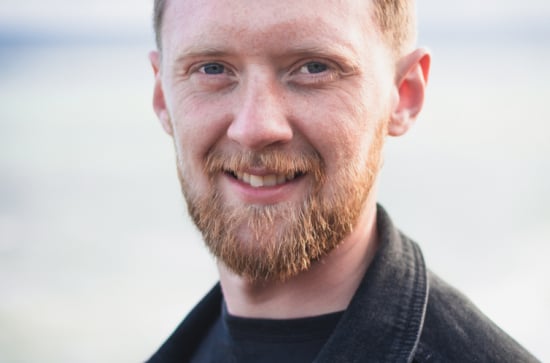Alexander West

My experience at Maynooth University was nothing but positive. Picking a particular highlight is challenging. One moment that stands out for me was a second year field trip to Lanzarote for a week. The experience was wonderful - focusing on many of the volcanic and geographical features that exist in the landscape. We also delved deep into the culture of the island - there are different sides to Lanzarote one does not see when holidaying there. On top of the academia and learning, we had a lot of fun too.
Maynooth University is a young, exciting, up-and-coming university. You get a real feeling of momentum and expansion on campus that I have yet to experience in other universities. It's exciting to be part of such a culture. Further, it's a melting pot for many different cultures from around Ireland and abroad. It's excellent for meeting poeple. I made many friends there, some of whom will be good friends for life.
The Geography Department at Maynooth University has strong research credentials and is actively pushing the frontiers of science. It was a privilege to learn from leading experts in their own fields. There is great flexbility in the course. Whether you're an environmentalist, climate enthusiast, ecologist, passionate for social issues or a bit of everything, you can find an array of courses that appeals to you.
My main interests is in the physical realm of geography. One reason why I chose to study the course was the great flexibility it offers. You have a real opportunity that other students from other courses don't have. I got to try out many different aspects of geography, and a lot of the information and skills I gained through my undergraduate are still being used for my PhD research. The main skills I picked up were field-based activities, learning to gather and synthesise information into a structured and interesting format, computer skills and learning how to collaborate with other students and research staff. After studying geography, I see the landscape in a different way. The physical and social landscape is always telling a story that's waiting to be unravelled and understood.
"What you put in, is what you get out" - this is a philosophy that I think every student should should be made aware of, particularly in science. To be successful in these courses, you need to actively engage with the content and go beyond suggested or minimum material. The Geography Department is a warm and supportive environment - they want their students to go on and do well. If you find a particular module interesting, contact your lecturers and tutors - they're always happy that students enjoy their content and it can help open doors for you.
Without any hesitation I would recommend this course. Especially for someone who knows they're interested in the outdoors and environment. You have an opportunity to study many different aspects of this and tailor your interests as you progress through your undergraduate degree.
After studying geography, I did a three-month placement in the University's climate change research unit (ICARUS). This was a fantastic experience that gave me my first insight into how research is done and I had the opportunity to interact with many of the leading experts and lecturers working at the university. After, I did an MSc in Environmental Sciences at Trinity College Dublin. I did this to advance my scientific understanding of the environment and follow my passions in ecology. Doing the MSc opened an opportunity for me to do an eight-week research placement at the University of Otago, New Zealand. We conducted a large scale field experiment that manipulated climate changes stressors on freshwater communities. About a year later (after working and travelling around New Zealand) - I was offered a full scholarship to do a PhD at the Institute of Marine Science in the University of Auckland (UoA). After my PhD, I plan to go on to do research and academia in freshwater and marine ecology.
I've enjoyed my career. Highlights for me would be my research placement in Maynooth and at the University of Otago, being offered the scholarship to do my PhD at UoA and conducting my own large experiment for my PhD.
My current role involves a lot of different tasks. I need to: read widely and be on top of the literature in my field; write papers, research proposals and plans; laboratory work; fieldwork; science experiments; collaborate with students and research staff; and general adminstrative tasks. On top of this, I tutor for undergraduate students.
I find the topic of my thesis intellectually interesting and challenging. I enjoy this as it keeps me engaged in what I do and I constantly strive to become a better scientist. I find it challenging at times to balance and prioritise all the different tasks I need to do but I'm still early career and as time goes on, I've got better at balancing this.
I always knew I wanted to do a PhD. So when I felt ready, I contacted many different research groups and scientists to see if there was any place for me in their research group. Before I started at the UoA, I had ongoing applications in Ireland, Germany, England, Australia and New Zealand. Thankfully I got my preferred option, but I would always advise students to contact and apply for PhDs in many different research institutes.
Show pride and enthusiasm in your work - no matter how seemingly small the task. You will get rewarded for it in the end. Engage and network with experienced people and experts - university gives you a great opportunity to do this. It gets your name out there and people are more likely to help you build your career.
